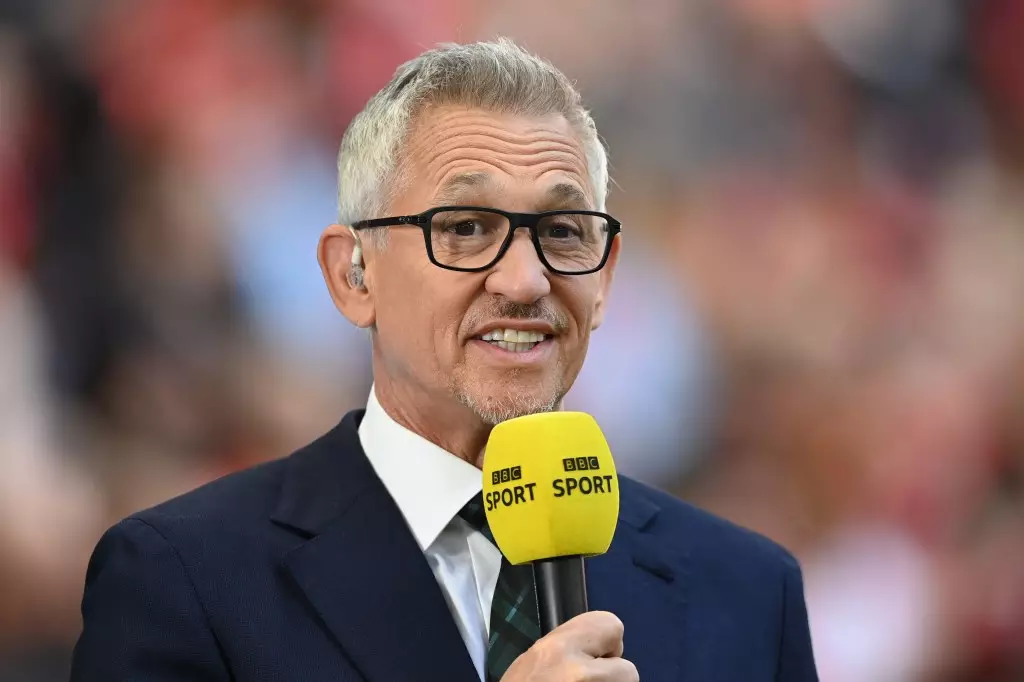In a move that marks a pivotal moment in British sports broadcasting, Gary Lineker, the BBC’s highest-paid presenter, is reportedly planning to leave the network. The expected announcement, which may come as early as Tuesday, outlines his intention to step down from his role hosting the iconic Match of the Day by May 2025, just before the 2026 FIFA World Cup. This decision, first highlighted by The Sun and later corroborated by BBC News, is sending ripples through the broadcasting community, signaling a potential turning point for both Lineker and the BBC.
Lineker’s tenure with the BBC has spanned an impressive 25 years. His work on Match of the Day has not only made him a household name but has also earned him the title of the BBC’s highest-paid presenter, with a reported annual salary of £1.35 million (approximately $1.8 million). Despite Lineker’s popularity among audiences and his respectful standing with BBC management, his relationship with the corporation has encountered turbulence, particularly due to his active presence on social media and his outspoken political views.
A notable incident occurred last year when Lineker was suspended for comparing the UK government’s portrayal of asylum seekers to Nazi Germany. His swift reinstatement followed public backlash and solidarity demonstrations from fellow sports presenters, illustrating the ongoing debates surrounding freedom of expression and impartiality in journalism.
As Lineker prepares to exit the BBC, he has diversified his career ventures, establishing a successful podcasting business through Goalhanger Podcasts. Shows such as The Rest Is History and The Rest Is Entertainment have positioned him as a significant player in the podcasting landscape, indicating that Lineker is pivoting towards opportunities that transcend traditional broadcasting.
Despite his diminished activity in political discourse on social media, questions about his impartiality linger. This ongoing scrutiny reflects broader concerns within British media about the balance between public figures’ personal beliefs and their professional obligations. Lineker’s proactive engagement with fans and sports enthusiasts through platforms like X (formerly Twitter) may have provided opportunities for dialogue, yet it also raised issues of bias that media organizations must navigate in an evolving landscape.
In recent months, talks have emerged regarding Lineker’s departure from the BBC, further compounded by reports suggesting that BBC executives, including director general Tim Davie, have anticipated this outcome. An email leak mentioned by MailOnline hints at preparations for a press release addressing his exit, underscoring the perception that Lineker’s decision is less of a shock and more of an inevitability in the realm of UK television.
As Lineker himself stated in a recent interview, “It’s an ever-changing feast,” indicating his recognition of the dynamic nature of football and broadcasting. While his departure from the BBC signifies the end of an era, it also raises intriguing questions about the future of televised football in Britain and who might rise to fill the void left by such a monumental figure. In reflecting on his time at the helm of Match of the Day, one thing is certain: Gary Lineker’s impact on sports journalism in the UK will be felt long after he signs off for the last time.


Leave a Reply